#the recognition of the self through a distorted mirror
Text
A journey through my moodboards
This is an analysis of all the moodboards I've created since I started journaling, from 2021 up to now
Searching for my golden hour

January, 2021
aestetic: golden hour
This phase of my life is defined by the significance of sunsets as a metaphor for what I was looking for: the magical and ephemeral moment that, despite its daily recurrence, never fails to captivate us.
Each of the images represented a goal:
The girl on the path symbolized the need for self-discovery and forging one's identity.
Roses embodied the past and roots, viewed through a lens of positivity and nostalgia.
We can also appreciate a collection of indoor plants, which would have a different meaning if they were wild plants. In this particular case, it represents caring for those who are home.
The bookshelf served as a gentle nudge to keep enriching my life with stories that leave enduring imprints.
Intertwined hands spoke of romantic connection.
Quotes:
❝Seek magic everyday❞
❝I am learning to find joy right here in the mess of things❞
— Morgan Harper Nichols.
❝Grow through what you go through❞
❝feel what you need to feel and then let it go. do not let it consume you.❞ - Dhiman
[...]
Homemade
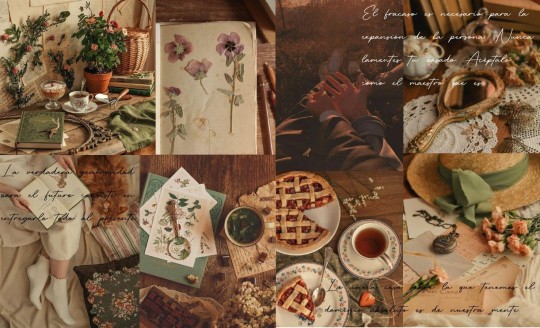
September, 2021
aestetic: cottage core
The primary distinction I notice in this moodboard compared to the previous one is that nearly all the scenes take place indoors and are linked to artistic expression. It's akin to the seclusion of an artist, one might say.
Numerous activities are depicted, such as reading, writing, cooking, or drawing. The golden mirror symbolizes a distorted self-perception and the urgent need to gaze into it once more for self-recognition. Additionally, there are recurring elements from the previous board, like intertwined hands and a cat.
Unlike the previous aesthetic, this one features colors reminiscent of nature: muted browns and greens.
Quotes:
❝Real generosity toward the future lies in giving all to the present.❞
— Albert Camus, The Rebel, 1951.
❝Never regret your past. Rather, embrace it as the teacher it is.❞
— Robin Sharma
❝You have absolute control over just one thing, your thoughts.❞
— Napoleon Hill
[...]
Eternal dilemma: air or earth

Somewhere in 2023
aestetic: cottage core
The colors in this moodboard are much brighter compared to the previous ones, with green and purple being the main tones. There's a portrayal of a sunrise sky, although it's not golden anymore; rather, it has pastel colors, much softer and calmer.
The symbol of the mirror makes a comeback, along with elements that have disappeared and others that have emerged, like daisies, representing innocence and childhood.
Themes such as books and art resurface, though this time there's a greater sense of solitude than in the previous boards.
Quotes:
❝part of her mystery is how she is calm in the storm and anxious in the quiet.❞
— JmStorm
❝He was earthly; she was aerial. He was made of clay and iron; she was made of fire and dreaming❞
— Graham Joyce, Some Kind of Fairy Tale
❝Book collecting is an obsession, an occupation, a disease, an addiction, a fascination, a fate. It is not a hobby.❞
[...]
The manuscript

March, 2024
aestetic: light academia
This moodboard boasts a distinct aesthetic, characterized by neutral tones, and it's centered around the writing process.
There's a contrast of ideas at play. On one side, there's handwriting alongside digital writing; on the other, tea versus coffee. It's safe to say I'm undecided.
There are fewer scenes depicted compared to the previous boards, making it simpler in design.
Quotes:
❝When it comes to art, it's important not to hide the madness.❞
— Atticus
❝The first draft is just you telling yourself the story.❞
#moodboard#cottagecore#cottage aesthetic#aesthetic#light academia#dark academia#light aesthetic#inspiration#photography#inspirational quotes#quotes#A little break from writing
21 notes
·
View notes
Text
Things End | People Change – Staining Touch
this is shameless friendfiction of my dear friend @whumpcloud's story Things End | People Change, featuring poorest little meow meow vincent, my beloved. go check it out if you haven't already !!!
CW: guilt, so so much self-blame and self-deprication, references to past torture and also past SA undertones (vincent is going through it)
Clary has brought him something new, something to slowly fill out the empty space of the basement that is not his but as close as it gets.
It’s a mirror, almost two-thirds of his height, strange and wobbly and cause of a weird noise Vincent cannot categorize into his existing knowledge when it is bent. Arguably, it is doing a very bad job of being a mirror, besides the fact that it is floppy and almost entertainingly noisy before being put up on the wall, because it distorts his reflection at the edges, pulling him into comical shapes like dough if he moves.
But most importantly, most off-puttingly is the fact that it portrays his reflection at all.
At first, he can do nothing but stare.
In a little under two hundred years, all Vincent has seen of himself was through the eyes of others and those never regarded him too kindly. Not that he didn’t share that sentiment.
He knows what he can see, from the brown of his hair to the shape of his body, he knows what little is left that connects him to Henry, like the green of his eyes, and he knows what separates him, like the scar that sits right under them, as if mocking.
And now that he can see his eyes again, for the first time in what feels like an eternity, for the first time in two human lifespans, which is distinctly one more than he had any right to, he can’t look at what remains of Henry without seeing what remains of Lyfelde.
That man, he…
Vincent swallows. If it could, his undead heart would be beating faster –skipping like a rabbit– with each step that thought takes.
…He loved to leave marks.
Not for some desperate desire to be remembered in an ever-changing world, but instead with the same expectations as couples that carve their initials in the bark of a tree, curious to see the way the tree tries and fails to heal the cuts, to see how they will twist with time.
Vincent is no stranger to cuts, to initials carved into his delicate flesh, to being torn open for amusement and to satiate careless curiosity, even though they will never show on his skin, no matter how he twists and turns to get a good look at himself in the mirror.
Lyfelde however never needed force to leave evidence of himself, even if he can proudly wear the title of the last permanent remainder of Vincent’s weak mortality long gone by, and at his hands no less.
After years and years of captivity, of relentless, giddy torture, Vincent couldn’t point out individual marks of memory, couldn’t remember the incisions, the lacerations, the breaks, only the aftermath, the pain ripping at the edges of his sanity.
But when Vincent closes his eyes, when he imagines his being as he sees himself, there are stains on his chest, in the shape of a freezing claw, long delicate fingers decorated with rings much older than Vincent ever hopes to be.
There is one right over his heart, claiming it rightfully as Lyfelde’s, honouring the hard work he put into tearing him apart just to shape him into a–
Into a toy.
He is collared –like a pet–, marked by two hands wrapping around his throat and squeezing, a brute display of strength Vincent thought could keep him safe.
Even now, after all of these years, his mind produces the image of his hands clearer than the face that is already blurred beyond recognition by time. Neither time nor the Hunters could beat Lyfelde’s touch out of Vincent’s memories.
Vincent stretches, looking over his shoulder, pointedly ignoring the way his ribs protrude through sickly ashen skin. Even the thought that this is a far cry from his jutting ribcage in captivity, the corpselike result of starvation, turns sour with the sacrifice of those that feed him.
He is tainted, he knows, from comfort twisted to form a blade –a stake– and embraces that should have been kind and understanding, that Vincent now can’t even bring himself to call “warm”.
He wonders –briefly– if, behind his back, in the security of Vincent’s blindness, Lyfelde’s expressions would have betrayed his intentions. If there was a way a trick of light and precognition could have warned him, if he had just seen it, seen the signs that should have been so glaringly obvious.
Still, at the cost of himself, he had found comfort and solace in the deathly cold touch, and that should have been warning enough.
Almost obsessively, his gaze scans over his own marred, unmarred skin, even as it is stretched and squished by the metal-mirror, now that he finally has the chance to, after decades of nothing. Some quiet, drowned-out part of him whispers back that this is why he avoided anything similar for so long, that the evasion of his own reflection was not only by force of his vampirism but by some self-preserving instinct.
It’s excruciating in a way that is dangerously addicting, a sizzling fire that he cannot look away from. Pain for the sake of pain for the sake of entertainment.
Curiosity and her twin sister punishment.
If he dares to let his eyes drop lower, his hips will carry two hand-shaped brands of intimacy and trust that were only ever one-sided, burned into his skin deeper than any silver and scratch marks betraying the attempts to rid himself of the ever-present poison seeping from every pore.
They condemned him to be both poisoned and poison at the same time, always a victim and always a monster and always rightfully so.
Vincent swipes the mirror from the wall, heaving, watching it fall to the ground, deafening but too slow. He wants to fall to his knees, begging and ripping the metal to shreds, ripping his own reflection to shreds so that he will never have to look at it again.
… So that it will never be looked at again.
#today i bring you: insanity. tomorrow? who knows#we were being so so insane about him#and then polly said something that made me go into an hour-long spiral#with this as the end result#vincent has ISSUES#and i love him dearly for it <3#also in case it wasnt already clear:#this is a love letter to basically everything polly has ever written <3#seriously go read their stuff!!#things end | people change#vampire whumpee#vampire whump#self deprecation#victim blaming#self blame#past torture references#sa undertones#emotional whump#self image issues#intimate whumper#vampire whumper#grief#other people's ocs#honey's writing
31 notes
·
View notes
Photo

Top, poem by Thomasin Frances, Hole Theory, October 15, 2022. Via. Bottom, 3D render by Neom of The Line - an enormous linear megastructure with mirrored cladding that is planned for a 170-kilometre stretch across the Saudi Arabian desert. Via. More.
--
The language of texting and emailing and access to everything including pictures and music in real time is producing a phenomenon that is neither pure speech nor pure writing. The language of cyberspace may borrow the language of orality, twitter, chat rooms, we-have-been-talking when they mean we-have-been-texting, or chatting through writing emails, but it is orality mediated by writing. It is neither one nor the other. It’s both. It’s cyborality. Will this produce cyborature? Already we have entered the world of e-books and audio books on CDs, a host of endless possibilities. All we can say is that writing and orality are realizing anew the natural alliance they have always had in reality, despite attempts to make the alliance invisible or antagonistic.
Ngũgĩ wa Thiong’o, from Globalectics: Theory and the Politics of Knowing, 2010. Via.
--
There is, however, in addition to natural narcissism, another mechanism that militates against “the union of contraries.” This one functions on the political level. It is that matrix of illusion, ideology, power-struggle, oppression, and myth that so often constitutes the mechanism of social life. In her contemplation of the political Weil seemed to arrive at a theoretical and spiritual impasse: the human heart perpetually yearns for justice while in the social world necessity reigns supreme. With a series of mystical experiences at Assisi and Solesmes she began to find a way through this impasse toward a doctrine of grace. But the consent that issues in the openness of the soul to grace cannot come about without taking the full measure of evil in the world. As Weil wrote, “only he who knows the empire of might and knows how not to respect it is capable of love and justice” (IC-IPM, 53). The empire of might stands most firmly as an obstacle to the full recognition of the existence of the other. The network of distortions, lies, and illusions constituting the empire of might militates, on the level of politics, against consent, against “the union of contraries.” (...)
The attention, Weil writes, is creative. But at the moment when it is engaged it is renunciation. Attention always consents to the autonomy of the other. This presupposes denial of oneself. “By denying oneself, one becomes capable under God of establishing someone else by a creative affirmation…One gives oneself in ransom for the other. . . . It is a redemptive act” (WG-F, 158). Attention bestows reality on the other, or rather, through our act of attention, God bestows fullness of being even where the social reality denies it. We find in Weil’s writings an account of justice which pertains not to the way in which people orient their will or predispose themselves to act toward each other, but, first and foremost, to how they see the other, and how they see themselves in relation to the other. If people see a world with themselves at the center, they will not see what is at stake in their relations with others; they will not see limits.
This is why, for Weil, the language of modern political and moral theory was ultimately inadequate: it was grounded in the language of the will. The basic assumption of modern liberal thought is that each individual seeks, by calculation and contrivance, to extend his own claim, to realize his own narrow interests, to self-actualize. This language gives rise to the illusion of being without limits. In the society in which we are living, ‘the rattle of everything that leads to the future” is more deafening and frenetic than ever. It constitutes for us the very matrix of myth and illusion that, for the heroes of the Iliad, took the form of the self-perpetuating violence of war. Accordingly it is a principle of limitlessness that blinds us to the true nature of reality. There is a sense of vertigo in the pace of technological development, expanding markets, the proliferation of new forms of media and advertisement.
Lawrence E. Schmidt, from The Language of Limitation as the Key to Simone Weil’s Understanding of Beauty and Justice, for ATTENTION, August 18, 2021.
17 notes
·
View notes
Text
𝐗𝐗𝐕𝐈. Opposite reflections in one same mirror: Ether and Void.
Outside the realm of the seven elements exist two different and mysterious energies of a different order that may exert power over them, thus they stand in a higher place in the order in terms of rules.
The nature of the 'Abyss' [Void] is essentially irreconcilable with the elements. However, even the elements of gods can be entrapped and distorted before they are subsumed to become tools of the abyssal will. Moreover, albeit their powers may cause irreparable damage to all living beings due to its main characteristic which precipitates everything to death (unless one receives its blessings, giving them the category of transcendent one) or the magnification of ill sentiments harbored in a negative heart, harnessing the power of the Abyss is not as different as doing so with any of the seven elements.
The nature of Ether [Khvarena as the local denomination in the Realm of Farakhkert], on the other hand, assimilates whatever materials and energies it comes into contact with it as opposed to the Void which entraps and distorts them. Furthermore, it has the ability to eliminate or reverse the influence of the Abyss —a type of annihilation reaction—.
Despite their differences, just as they both stand at the same level in terms of rules, they both harbor the capacity to re-write the rules as well as both have a will or a form of self-recognition.
As the Light Prince before him, Dáinsleif was born with Ether within him which, unlike the Abyss, it re-writes the rules of this world in such a manner that brings benefits: reinvigoration of other living beings around him standing at the highest with the undeniable aura around him that continued in his stay in Khaenri'ah. Among its capacities to re-write the rules of the world, he also counts with the ability to defy gravity in performing telekinetic abilities (such as when he seized an Abyss Herald in a strong grip), matter (as when he retrieved the eye of the first Field Tiller through its carcass without damaging the Mechanical Warden), enhance his own speed, heal to a small extent and reverse the effects of the Abyss to an extent. Furthermore, he is capable of using elements within his vicinities by assimilating them with Ether at will.
His connection to Irminsul magnifies greatly his capabilities with the etheric power in a moment in which Void exceeded its present within his body than Ether, as a result of the curse he bears and the corruption. It is thanks to his connection to Irminsul that not only his initial Ether was restored, but increased. With it, he acquires a complete ability to eliminate and reverse any Abyssal traces, to heal at a major extent so the treated wound doesn't become mortal and ensure with absolute certainty that death will not occur and, lastly, the assimilation of elements without the need to resort to elements in his strict vicinities. Given that Ley Lines carry the seven elements and they are Irminsul's veins, he can touch upon their power by making Ether assimilate them on his own volition.
#◟༺✦༻◞ glimpses in the past of a shattered spirit ┊headcanon.┊#it's really good to have more specifications on this#I did want to make this differentiation#between what comes naturally from Dain#as per the background I've established for him#and what Irminsul adds to the mix#there are missing things#like his omniscience or divination#but I felt like those are a separate matter#that I already discussed in the past#these being acquired with his connection to Irminsul; that being said#not tagging this as anything#because this is almost more of the same#that I've talked about in the past#just solidifying this with new pieces of information#scattered in non-collectable documents
3 notes
·
View notes
Text
Book project proposal
I wish to do my project on identity and self image. I wish to portray how one can feel confused at times who they are and what their identity is. I wish to explore if people can ever truly know who they are since it’s forever changing. I wish to portray how one can feel lost with their identity at times and also have their identity pushed upon them by society based on what they look like. For example girls and boys are told how to be and what to like from a very young age and it’s different based on what gender you are. I also wish to explore the idea of how ones inner child is you true identity since as a kid you aren’t as conditioned by society yet.
I wish to explore with mirrors, projectors, combined images, and low exposure. I will be doing portrait photography. To portray the questioning of ones identity I wish to have a photo taken with long exposure of someone only moving their head in different positions to symbolize confusion and questioning. The head being the only thing which has movement and by creating the look of the subject having multiple heads sort of blended together, creates the effect of someone being confused with their identity since the head isn’t stable and clear. I wish to have someone’s head covered with something to create the effect of seeing someone without an identity. Identity and recognition of someone is usually from their face, and if it’s covered no one truly knows who they are. So the covering of the face would have a metaphorical meaning as well. I wish to have someone standing or sitting in front of the projector with words repeatedly saying all over them either question marks or the words “I am?” Written repeatedly over them from the projector. I also wish to have the effect of someone covering their face with their hands, but their hands being see through to symbolize someone switching between lost identity and of feeling grounded again within themselves, so a constant process of changing identity and of confusion about it. I wish to do this effect by either using the projector to project hands on someones face, or by using a slow shutter speed and have someone cover their face then take their hands them off quickly. I also wish to capture a person multiple times with blur to their movement in the same photo to symbolize a person constantly moving in search for identity because they feel as if they’ve lost their own. I either will try to capture this with slow shutter speed or will merge multiple photos together. I also wish to portray subjects looking at their reflection to symbolize self reflection and someone attempting to figure out who they are. I wish to try and have one of these reflection shots be with water. I wish to have some of the shots have the subjects face be distorted in some fashion either have them look through a glass, or use a broken mirror to symbolize them not knowing who they are. I wish to portray societies projections of identity they put on to people. To portray how society puts labels on people which tell them “who they are.” I wish to project some of these labels on to subjects using a projector. The projector projecting the labels onto people symbolizing society doing the same thing, projecting labels. Finally to portray inner child identity, I wish to portray my self now and me younger either using a projector or by combining two images one of me as a kid and one of me now. I wish to capture how me and my younger self seem to be completely different people and if that’s truly the case, or if that little me is me at my most pure and all the changes which have occurred is just society’s influence over it.
The format I'm going to use is to make what appears to be a book digitally. I'm going to place one or two images on each page.
0 notes
Text



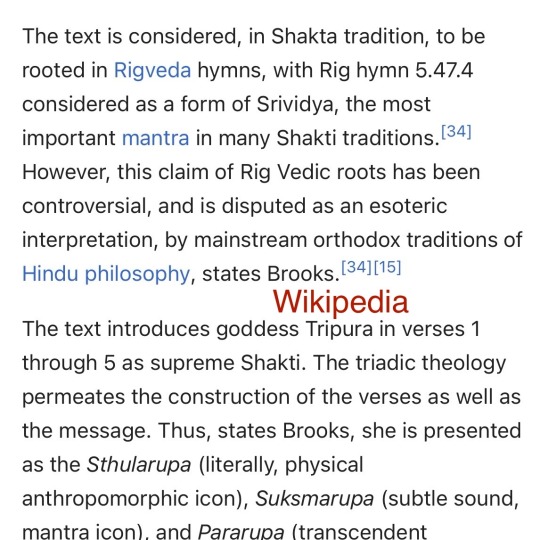




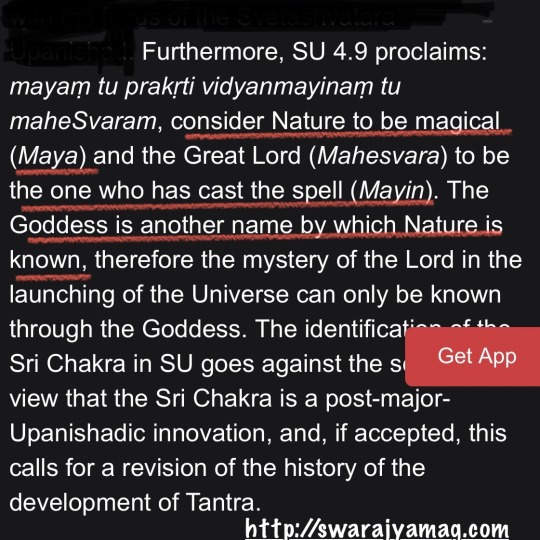
The one true desire, is the desire for the Self.
—•—
All other desires are tangentially desires for the Self.
If I say my desire is for more peace, more harmony, more rest, more abundance, more prosperity, true friends, happiness, a home etc. I am tangentially saying I desire to find my Self.
Because deep down, at the back of the psyche, we remember our cause & origin, the source— we are either being as existence or we are longing to return to the pure state of being.
We somehow know that being as existence, knowing our Self, restores peace, ends conflicts, satisfies, fulfills, is true prosperity etc.
When we desire something specific, it is the Self we desire in the form of that thing.
However, if we don’t know the truth of that thing, in time, it must negate itself in our story-line— it stops satisfying us, it is not what we thought or hoped it would be, it disappoints, lets us down, brings conflict, sowers, becomes a burden etc.
This is the outer reflection, mirroring the inner confusion, it is saying to you “no, I am not this thing”.
In inner stillness you can hear the message speaking through the details of your story-line. All story-lines & narratives contain the golden nugget of truth, or the search for truth.
If we are still, we hear the mind’s attempt to say what it remembers, but has forgotten & misunderstood, we are able to see the truth concealed within the misunderstanding, delusion & distortion (maya, avarana).
There is nothing that does not contain that golden shining light of truth, no matter how concealed it appears to be, what is needed is the stillness to see, to catch the glimmer, a momentary glimpse, a recognition.
We peal back the layers so that beauty, wisdom & goodness is revealed in all splendour.
-
-
-
#consciousness #lalita #lalitatripurasundari #lalitadevi #sriyantra #srichakra #beauty #truth #spirituality #mothergoddess
#Lalita#lalitatripurasundari#feminine magic#beauty#splendour#truth#witch#alchemy#oracle#presence#esoteric#magic#love#priestess#desire#longing#self
0 notes
Photo

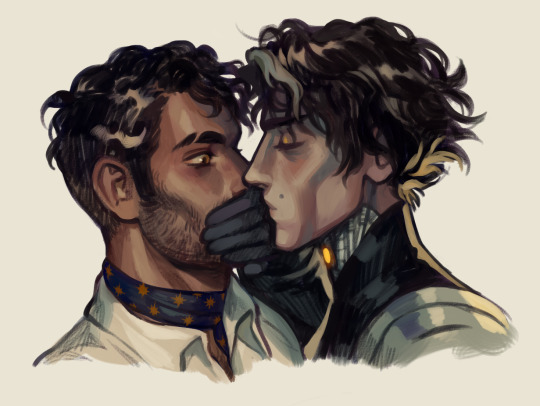
*twirls my hair* so there’s these lab partners
#i watched the arcane and was like 'yeah that was pretty good' and then i read an analysis of these two's biographies and i was like#omg its about the duality between humanity and machinery. our relationships to agency but also our relationships to class and our own bodies#and also its about people in a codependent relationship who hate each other which is like my Favourite#like we love when characters act as thematic parallels to each other#the recognition of the self through a distorted mirror#anyways i made my own viktor and jayce designs because i didnt really like the canon in-game models#and also it was fun practice drawing machinery#the second picture is the end scene from 'dialectics and reflectives' by jhingerale i thought it was cute :)#LoL#arcane#vikjayce#my art
2K notes
·
View notes
Note
this is an interesting concept! how about pomegranate, licorice, and dark choco?
I'm not quite sure how to do all three at once, but!! I will give small snippets for each of them!
-----
As the soulstone splinters and chips, so does the mirror of the despised priestess. From the shards that gave way assaulting her skin, digging into her like knives- the believer of darkness is sliced by the very thing many of her days had been spent cherishing. Even with a reflection no longer clearly visible, Pomegranate desperately attempts to see a way through her broken mirror... Only to find a red-eyed shadow staring back at her.
A haze of red enters her vision as it emanates from the source of the shards- one all too familiar. The very nightmares that she would cast upon others would become her own distorted reality. The shadow rises above her, impossibly tall... And all Pomegranate can do is watch with pleading eyes as all that surrounded her and her 'self' would become tainted with nightmares. A nightmare... That would not end, so long as her soulstone remained as it was.
-----
Boasting words were cut by sudden nausea. Dropping his scythe-staff and hearing it faintly clatter to the ground, the necromancer would stumble and fall with little grace onto his knees. He'd retch, though nothing would come out... And tar-like fluid would drip from his mouth. "Wh... wha-ha-hat is this...?" His woozy voice would barely be able to scrape the words out. Once again, the disgusting sound of the body attempting to expel something within it would occur- followed by the whine of a man who felt like his body was trying to turn itself inside out.
Again and again, Licorice's body would attempt to reject something, only for nothing to come out, until... A rush of blackness would escape his mouth, splattering onto the floor and staining his robes. Through hazy vision, the magician of darkness vaguely noted a piece of white. A... a chunk of bone. His bone. The very recognition of such brought him to retch yet again, with newfound despair with the knowledge of what his body wanted to rid him of.
-----
No being was ever trusted with Dark Choco's soulstone, nor would one ever will. Kept safe beneath layers of armor, the fallen prince would have thought that keeping the essence of his life as close to him as possible would have proved to provide an advantage- no one would use it against him. Though, with armor as old as his... It was bound to break. And as destiny bonds itself to the most unfortunate of circumstances for the warrior, no matter how he tries... His soulstone would break right along with it.
The sound of the shattering would be heard by the enemies through the sudden clash of swords being brought in the enemies' favor, and though they would push forward as the fallen prince would barely keep himself kneeling... Dark knew of someone else that would keep a stronger defense than he ever could... And though it was painful, as the scar on his eye and the many hidden scars beneath his cape would tear themselves open... Spewing blood and bile alike to seep through his tattered armor... Knowing that he was going to perish on the battlefield, the cold stillness when the soulstone would finally give out would be all the more satisfying.
Just one more bout of being shrouded in darkness... And he can finally face the light of something higher than even the Enchantress...
#soulstone sours#angst drabbles#pomegranate cookie#licorice cookie#dark choco cookie#injury warning#emetephobia warning#vomit warning#gore warning#nausea warning#death warning#murder warning#ask to tag#// its 5 am!!! welcome to me writing before i pass out#// licorice's is extra fucked sorry about that (isn't sorry lightheartedly)
25 notes
·
View notes
Text
The maid and the Cat, Ren and Akira: some musings
What gloomy love brightened the half-lives of the Sohmas’ most Cursed ones?
I often wonder what the relationship between the former Cat and his attendant would have looked like, twisted and sad as it must have been. Precious little is shown about those two, and only through Kazuma’s pov. We know she took care of and pitied the Cat, to the point that she even slept with him and bore his child. This is not unlike Kureno’s relationship with Akito. She might have treated him with the same kindness and devotion, distant, perhaps harmful, yet selfless.
Selfless? I think another way to extrapolate on the story of Kazuma’s grandparents is with Ren and Akira’s relationship.
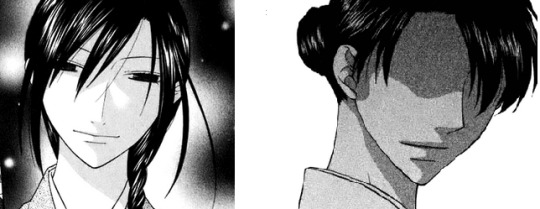
Many great meta writers have already pointed out that those who fill in the positions at the extremes of the Sohma hierarchy, the Cat and God, or in this case the Cat and the idolized, deified family head, are foils to each other and are the ones that are dehumanized and isolated the most.
But now I think that you can also compare the way the previous Cat and Akira both chose ("chose" being a relative term in the case of the Cat) a romantic partner.
(Akira wasn’t God, but as the family head, he was worshipped just like Akito. His sickness also contributed to making him stand apart. Not only was he kept inside the compound because of his frailty, the hold that death had on him blessed him with this ephemeral, divine aura. “Was it the sorrow that befell him at such a young age that gave him that otherworldly beauty?»)
Both Kazuma’s grandfather and Akito’s father were doomed, Akira to die an early death, Kazuma’s grandfather to live the life of a living dead. Both were buried alive in the Sohma estate, either at the outskirts or at the center of it.
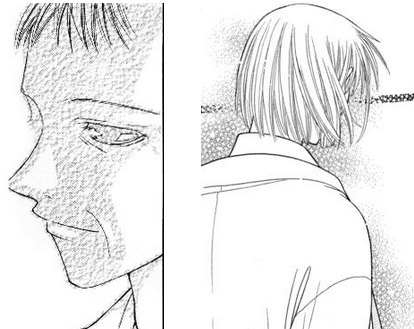
Both reached out to their progeny. (But Kazuma rejected the offered cake, and will endeavour to atone and honour his grandfather’s memory. Akito clung to every memento she had of her father and will need to learn to let go of him.)
And both the previous Cat and Akira found some measure of comfort in the affections and arms of their female caretakers, Sohma servants who saw their loneliness and expressed their compassion, though not in a particularly healthy way: Kazuma’s grandmother acting out of pity, Ren out of obsessive love.
It’s interesting to me how their respective position was reflected in their partners’ feelings : the imprisoned, despised Cat, Kazuma’s grandmother looked down on. The respected, otherworldly beautiful Akira was adored by Ren.
Kazuma sums up his grandparents’ relationship thusly:
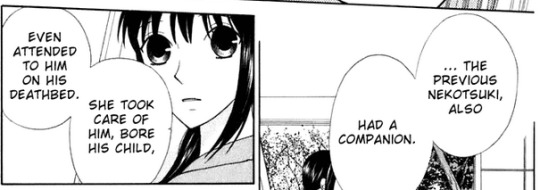
Those correspond to the main "duties" that a wife is traditionally supposed to provide her husband.
The day-to-day caring.
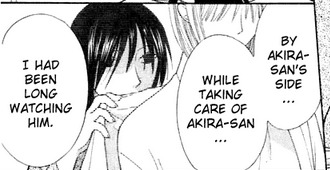
Childbearing.
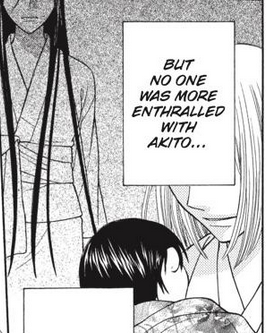
Attending their husband’s deathbed.
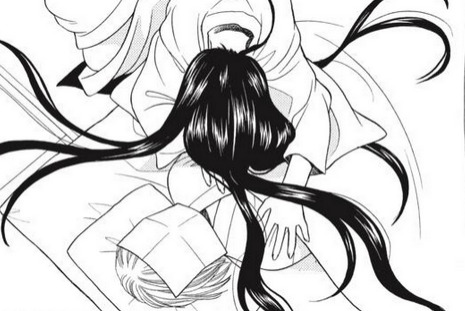
Obviously Ren wished she could have skipped the second one and be there for the last one. (I headcanon that she had prepared her last words years in advance, finding small pleasures and comfort, on the back of the wave of despair anticipating Akira’s death, in rehearsing the declarations of passionate love she would address to the dying man.)
The Cat’s companion attended her partner’s deathbed, seemingly very composed, even cold, as seen in Kazuma’s memories, while Ren, deprived of her husband’s last moments, that she felt were “stolen” from her by Akito (in reality by the maids :@), was mad with grief.
"The only one who can save him"
Those parallels make me wonder whether or not the Cat’s companion might not have developed a saviour complex, like Ren, both believing that they were the only one able to save this lonely, condemned person they were taking care of, and relishing it.
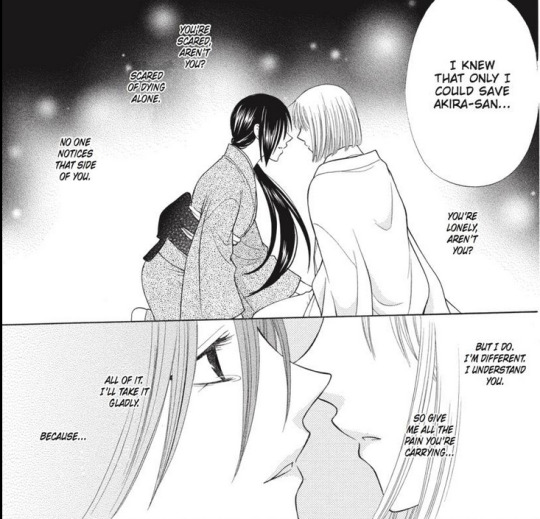
“I love you” vs "I pity you"
On Ren’s side though, it seems that she believes she truly saw Akira, as the person hiding behind that otherworldly aura, filled with sadness and fearful of death. Seeing that Akira agrees with her ("Ren noticed I was lonely"), fought against the Sohma leaders and regretted on his deathbed that he and Ren couldn’t reconcile, I believe this is not a delusion of hers. Her love was genuine and passionate, and she and Akira were happy. Unfortunately, that happiness didn’t survive her pregnancy, for she was also jealous and obsessed.
Kazuma supposes that his grandmother believed that she was doing something good. I wonder at her expression. It is shadowed, enigmatic. Is it a smirk or not, is she sad or not? i wonder whether she was selfless in her pity, like Kureno, or selfish like Kagura, perhaps feeling better by «sacrificing» herself in associating with the Cat for the sake of a miserable soul.
(Whatever you can say or imagine about her, Kazuma doesn’t seem to suffer from the stigma of being the Cat’s grandson, nor does he bear any trace of an abusive upbringing - in fact, he was among those doing the abusing - or even the echoes of the previous generation’s, so my guess is that she was an okay mother and grandmother... which would have made Kazuma’s disappointment and hurt at her words all the sharper... Like Tohru thinking of the zodiacs members she finds so kind and adorable secretly looking down on someone else she realizes she cares about more than she thought.)
There is no way to know how the Cat reacted to a pity-love. But considering Kureno and Akito’s relationship, this might also have been but a superficial balm, and potentially just as hurtful. Then it depends on the interpretation. Kureno’s pity cocooned Akito and kept her from moving forward, but the Cat was condemned anyway to an eternity of imprisonment. Moving forward was forbidden to him. And if his self-worth was already completely destroyed as his role and his treatment are meant to do, he might have just felt grateful towards the attendant. There’s no way to say for sure whether he would have been hurt or not by the truth, and I don’t know which option is the saddest!
... but I know what could be sadder. Because is the maid entirely to blame? We know that in Fruits Basket, love requires a measure of selfishness. The one cursed with the Cat has no self, no existence, no wants and no future, and they accept this fate. They believe they deserve it. (Which is why the Cat's Room doesn't need bars in the manga, nor locks. Rin was under lock and keys because either Akito didn't completely trust her to keep her word or she didn't want someone to discover her.)
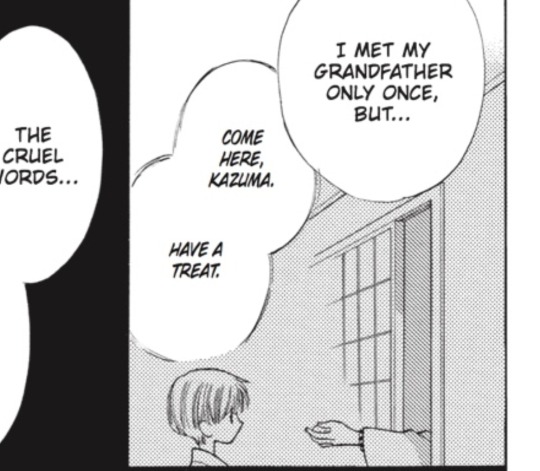
It would be very difficult for someone to fall in love with a person who has renounced to everything, perhaps including love. Because who's to say that the Cat loved the maid too?
Recognition vs indifference
How depressingly fitting that we don't even learn the Cat's name, while Akira’s is remembered by all and echoes back and forth in the later part of the story.
Ren marrying the Sohma family head was such a big political deal it provoked a family schism. The Cat’s story with the maid gets completely ignored. It is probably known, just not "officially recognized", says Kazuma. Like everything related to the Cat, it was relegated to the back of the minds, in the dusty closet of the things that are uncomfortable to think about but that you tolerate if it doesn’t upend your little world-view. Ugh, some maid is being inappropriate with that monster! Well, as long as she doesn’t free the loathsome creature, who cares. (And she wouldn’t, because she’s no Tohru.)
In contrast, the maids of the main family thought that Ren was stealing Akira from their grasp. Ren didn’t seem to care for the family, and in a way, her love allowed Akira to also escape from them, "snatched away" by "that woman”, for the old attendant. Unlike the Cat’s attendant, Ren felt like a threat to the Sohma strict hierarchical system. (Fortunately, God will be born to bring back the right order of things, phew! Certainly she he will accomplish what Akira-san was momentarily too misguided to do and rid us of that woman!)
Inheritance.
Both women's profession of their true feelings deeply marked their progeny and the way they view relationship, whether personal or not, romantic or filial.
While her mother affirmed that "a woman only needs one man", Akito leaned on the love of the zodiacs ; Kazuma viewed and loved Kyo as a human and dreaded that his son would find himself in the same situation as his grandfather but also with the same kind of companionship. (His reaction to Kagura speaks of a long-held anxiety). But Ren's hatred for Akito coloured the way Akito interpreted her words, while Kazuma’s grandmother’s declaration shook Kazuma, his personal relationship with his grandmother notwithstanding.
This comparison isn't about good or evil, neither to judge those characters. Furuba isn’t about that. Obviously, they are not blameless. But it is very difficult to say whether or not Kazuma’s grandmother was wrong to act out of pity if it provided a bit of comfort to a prisoner. And is it surprising that Ren developed this saviour’s complex when it seems she was the only one willing to breach Akira’s isolation bubble?
Anyway, Takaya-sensei is really good at making foils. Either because she does it on purpose or because her characters are so deeply intertwined with the themes of the series the parallels appear on their own. But in this case, I don’t think it’s for nothing that the chapters recounting Ren and the Cat’s attendant stories follow each other (chapters 114 and 115).
Of course, this meta is less an analysis and more suppositions and conjectures (frankly, I wonder if I might not as well have written a fanfic). From the little we see, the Cat’s companion and Ren work as distorted yin-yang mirrors, their differences highlighting the similarities of their situations, from the ugly effects of the inner workings of the Sohma cult to the messed up inner workings of the heart. Genuine but obsessed, jealous love... Pity, perhaps self-serving, in the guise of martyred love.... One thing I can say for sure is that these two both gave me chills in their own way.
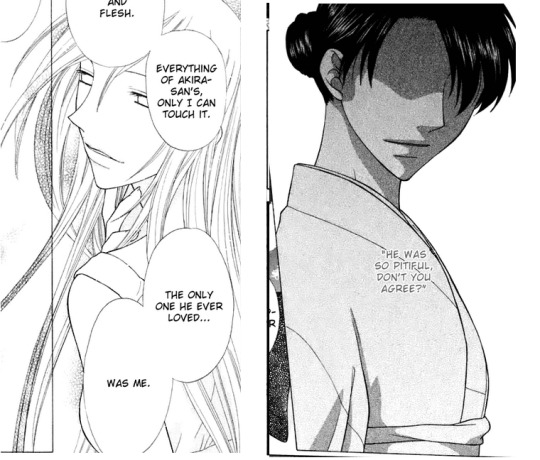
#ren sohma#cat's companion#the cat spirit#zodiacs#fruits basket#fruits basket manga#fruits basket season 3#fruits basket meta#love vs pity#meta#akito sohma#akira sohma#kazuma sohma
68 notes
·
View notes
Note
always thinking abt this: https://witchinghour.tumblr.com/post/186369245142/the-mirror-faced-grim-reaper-in-meshes-of-the
death is in a mask....the mask is a mirror......
my girl asaemon looks like this and that's why gintoki will never be sober lmao
anyway, yes. masks and mirrors, switching masks, mirror as truth vs mirror as distortion/unreality, self perception and self recognition through the death and all that... tbh, right now this makes me think about takasugi most of all. he wanted death (or to destroy the world if you will) just like utsuro. in fact he wanted what utsuro wanted so hard that he became utsuro (that is, only in appearance. therein lies the trick, that's how they defeated utsuro) anyway im not going to write about mimesis aGAIN but i dare anyone to look at mirrorface grim reaper and then tell me takasugi's death is bad storytelling and utsuro is a bad villain-
#shinigami arc my absolute beloved my everything m#goddamn shinigami arc opening scene my fffffffff beloved#<- already had this tag😎#ask#top 5 most visceral movie scenes etc#and classiest grim reaper without contest.#again srry for the lack of coherency ive. stopped vibing.#university is skinning me alive im typing this from xie lian's gay little book 4 grave
9 notes
·
View notes
Audio
Leila Abdul-Rauf - Phantasiai
In Hellenistic philosophy, phantasiai are our impressions, the ways in which the world is represented through our senses, preceding actual thoughts. This is where music-making lies for me: in the space between senses and thoughts, having the power to express where words fall short. What I believe to be the coldest and most sinister album I’ve released under my name to date, Phantasiai is comprised of two suites, each containing four movements, composed almost entirely from modulated live trumpet, glockenspiel, and vocal performances.
I encourage listeners to create their own stories about Phantasiai, but here is my own. The first suite, “Distortions in Phantasy,” describes a character being seduced and consumed by a powerfully addictive phantasy, one so destructive, the body, mind and spirit are annihilated beyond recognition. As the album moves between tracks I through IV, listeners may experience a gradual sensation of seeking deeper into an abyss.
In the second suite, “The I Emerges,” the character experiences a renewal in which what little is left of the former self is vaporized through a crucible of sorts, then re-organized into a new physical and spiritual existence. The pain of the loss experienced by the former self is gone, but adjusting to the new self is an uncomfortable and disorienting experience, with reality perpetually coming into question.
All songs composed, recorded and produced by Leila Abdul-Rauf.
Guest vocals on "Imago and Mirror" by Loki.
24 notes
·
View notes
Text
PARTY FAVOURS | CHAPTER 5
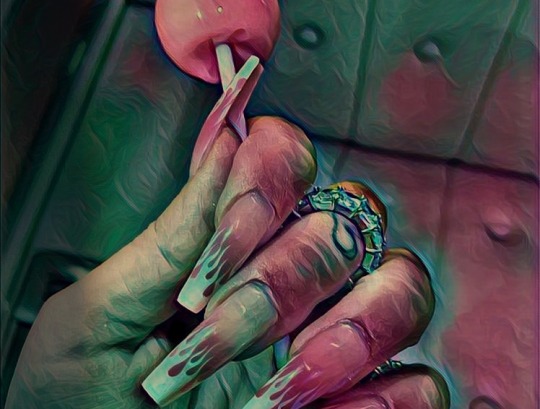
Rating: Explicit.
‼️TW: Reader is EIGHTEEN! Recreational drug use, smoking and alcohol consumption, deeply internalised self-loathing, very questionable moral standards. Daddy kink taken half-seriously. BDSM themes in later chapters - explicit content will come with it's own TWs. FIRST PERSON POV.
Summary: You're Peter's classmate, a child of rich and famous but uncaring parents. Getting paired up for a lengthy project with the boy was an interesting turn of events and you don't know whether to feel blessed or cursed when you develop, seemingly, a perfectly normal, harmless crush on Tony Stark. Fueled by feelings of inadequacy and boredom, your life spirals out of control - and you're lucky your newfound friends are there to pick up the pieces even if you cannot find it in yourself to believe these amazing human (and not so human) beings voluntarily give you more than a fleeting glance and an offhanded thought. And they brought cake!
A/N: Revenge is sweet but a well-timed dick joke is sweeter. xoxo gossip girl. Please supervise one Bucky Barnes on the internet. Questionable music taste. Detention is the price we pay for justice. Bruce Banner is too precious for this world, too pure.
THE TAG LIST IS NOW OPEN! @another-stark-sub @mostly-marvel-musings @vozit @littlegasps @pilloclock @shereadsinquiet @downeyreads @hermione-grangers-wife @individualistfem
Beta read by the lovely and patient @miscmarvelwritings ! 🎶🎵I love you biiitch ain't ever gonna stop loving you biiitch 🎵🎶
"Initiate phase one," I added a growly undertone to my whisper, holding my phone inconspicuously, as if I was making a simple phone call. There was no answer but I didn't expect one: I was testing the voice recorder app that I had downloaded for the sole purpose of documenting and relaying the inevitable fall of one Flash Thompson.
Making my way through the crowd of students during the busiest time of the day, I made the most intrigued and outraged facial expression I possibly could. Spying my targets, I leaned against a nearby wall, putting a hand over my mouth in fake outrage, keeping my eyes wide and trained on the opposite wall. Just as I had predicted, the two sophomore girls started giving me side-eye by minute two of my staring and finally approached me as I contemplated the wall for whole five minutes.
"I'm sorry, are you okay?" The brunette asked, her blonde friend hanging a step back.
"Yeah, totally," I mumbled. "I'm, like, shook beyond imagination, but nothing, like, bad."
The girls traded a curious look, seemingly coming to some sort of conclusion. The greedy gleam in their eyes had me internally cheering. "What happened?" The blonde one asked, coming closer.
"I'm not sure if I should tell that to anyone," I stammered, watching them bodily move forward. "Well, okay, I can't keep quiet. But you must never, ever speak of it or I'll get expelled or something," I said nervously. They both nodded so rapidly it reminded me of Funko Pop figurines. "You know the senior guy, Flash? Brown hair, kinda hot?" Again, they both nodded, conspicuously grinning. "I think I just saw him in the closed girls bathroom on the third floor with, like, some brunette from Ms. Johnson's History class," They both gasped. Predictable. "But that's not the worst! They were like, y'know," I made an obscene gesture with my hand and they instantly covered their own mouths with their palms in shock. "And the chick was like 'is it in yet?' and he was like 'yah' and I just closed the door and ran, oh my god I hope they didn't hear me," I squealed at the end, playing the part of a mortified teenager.
All three of us giggled uncomfortably for a moment. The blonde girl stared at me suspiciously. "And what were you doing there?"
I faked a nervous stammer, looking around briefly and showing them my lighter for a moment. They both gasped and nodded in recognition. "Don't tell anybody or my mom is going to have kittens," I pleaded. Both of them nodded solemnly, noticing their own group of friends approach. I used the brief moment to get lost in the river of pupils and by the time they turned around to introduce me, I was already at the opposite part of the hallway.
For the time being, everything seemed peaceful. There were a few giggles and side-eyes directed towards Flash Thompson but nothing out of the ordinary. He was disliked by most of the student population even if nobody dared to admit it outright. I took care to walk around without my earbuds for the day and pulled out my phone to record the most interesting conversations around me whenever I caught the tell tale signs of a gossip mill beginning to run its course around the school.
"Oh my god, I heard about this girl that was caught fucking Flash in the girls bathroom and she literally said 'is it in yet', can you imagine the shock, jeez!"
"Some chick literally just rejected Flash because his dick was too small."
"Rebecca from AP chemistry told me someone saw Flash's micropenis. Poor guy!"
"I wonder if his girlfriend dumped him because he can't do shit, I mean, he doesn't look like the type to eat the kitty."
Those were just the highlights of the Friday afternoon. Come the weekend and the news of Flash's unfortunate condition will make the rounds through every single group chat that the school has and by the time Monday rolls around, nobody will have a clue who started the rumour in the first place. I had to carefully select the girls who were to distribute the rumour and I was happy with the outcome: Marissa and Layla with their squad of chatty, bored rich girls were the perfect choice. I thought they would jump at any opportunity to cause drama and I was right.
It was sufficient to say I was bristling with pride as I cut and compiled the audio track from today's school day before sending it to the group chat.
Clint, Peter and Natasha appeared online as soon as the message delivered and I was delighted at their response. Romanoff's kind words, specifically, made me all warm and mushy inside. I didn't resist the feeling, basked in it even as I did a happy dance around my room. Peter's nonsensical string of emojis was another point of laughter for me.
It wasn't exactly the smartest way to go about killing Thompson's reputation... Alas, simplicity is the way to success when it comes to large crowds of teenagers. That tiny little vindictive part of me was very much looking forward to the weekend and the results of the inevitable distortion of the rumour I had started. Who knew, maybe by Monday Flash Thompson would not only have a micropenis but horns and hooves as well.
Near bedtime, I had all the avengers send me their regards and thumbs up. I answered the flurry of texts as quickly as I could but there was no point in keeping up with ten or so people constantly streaming their questions, opinions and comments.
I settled on a single easiest response: pulling my dad's old uni sweatshirt over my tiny lacy pajamas to preserve some modesty, I settled in front of my mirror, turning on my Bluetooth speaker to play "Boss Ass Bitch". In true gen-z fashion, I put on my best resting witch face and solemnly lip-synced to the song's eponymous chorus. My eyeliner was sharp enough to cut paper and my prismatic highlighter glittered enigmatically in the cold light of my blue lava lamp.
The response was, once again, delightful and I genuinely belly-laughed at the adults' attempts to meme after Peter. His blushy face emoji started a whole nother conversation that I didn't participate in but watched from the sidelines with glee, snorting every time his friends and mentors gently teased him about the very obvious crush he harboured on me.
Seeing Peter starting to go absolutely nuts, I interjected with an offer (more like a dare) of a lip sync battle. He jumped on the bandwagon, immediately going offline to undoubtedly film an epic video of what I thought would be dorky-dancing to some hipster song. I was pleasantly surprised when it turned out to be a pre-recorded tik tok video of him and Ned fighting with lightsabers while mouthing the words to Fergalicious that played over the Imperial March.
Weirdos. I still followed him on the app, though, it was pretty funny.
Bucky interjected with a very well executed rendition of "Bring Me to Life": he was wearing his full Winter Soldier get-up, complete with an AK-47, dramatically serenading Steve who looked seventeen shades of done with his partner's antics. Wanda's following twenty second voice message consisted of nothing but pure hysterical laughter, summing up everyone's reaction to the video. Bucky was going to go viral one of these days...
Obviously, I had good competition and nobody else seemed to want to participate so I rearranged my surroundings a little bit and stood up at my full height and swapped the old sweatshirt for a cute crop-top hoodie. My thigh-highs were on display and with my make-up, I looked like a proper internet e-girl. I leaned against the mirror as I mouthed along to the song with my best interpretation of the famous Lucifer smirk, seasoned with a tiny bit of angelic innocence: "Doctor, doctor, give me the news, I got a bad case of loving you..."
Needless to say, I won the competition. Eventually Wanda joined in, looking menacing and ominous with her dark clothes and Natasha's red hair flashing somewhere in the background; even Tony did a round (AC/DC as his soundtrack of course) with one of his Iron Man suits but nothing beat my stunt and the reaction that it caused.
I had accidentally called out Bruce with the choice of my song and his teammates gave both of us a lot of cheeky comments about it. We relented and flirted with each other a bit as the conversation flowed into more mundane discussion; I said my good nights somewhere between Tony's bitching about the hobbies of my generation and my nightly skincare routine. The little green heart that I'd become accustomed to over the past few weeks greeted me just as I was about to lock my phone.

Bruce was really too precious for this world. My crush on him was different than the one on Tony, it mellowed out in comparison. I wanted him to hold me, to stroke my hair, to call me his darling and wrap me up in one of those dorky button-ups that he insisted on wearing in spite of Tony's unwanted, however very valid, fashion advice.
For all that's worth, the scientist probably knew or at least suspected and had the good grace to play along just enough to satisfy my deep need for attention... Without crossing any actual lines. It was frustrating, it was disappointing but I had virtually nothing to complain about. Besides, I didn't want to lose the quirky friendship that we had. Banner was, probably, the least judgemental person I knew and I wasn't about to trade that for an awkwardly stolen kiss.
Monday and Tuesday passed in a flurry of giggling and snorting every time Flash walked by. His girlfriend broke up with him, very publicly, accusing him of cheating and he didn't even deny it - just insulted her and stormed off, leaving even his friends looking lost and clueless. I started dragging Peter and his two pet nerds along with me just about everywhere I went in case Thompson decided to do something stupid again. If judging only by the looks he was throwing our little company, he was on his way to figuring out who began nibbling at his reputation.
The week was coming to an end and the rumour began dying off, slowly. That just didn't sit with me, I wanted the fucker gone. Due to the obvious time constraints, I approached MJ regarding Peter - after a brief argument, we came to an agreement regarding Peter's safety should I need to leave him alone in the hallways or at lunch.
I needed to do this alone so if I got caught, I won't drag them down with me. Granted, I would probably get something like a suspension and the school will attempt to call my mother (she never picks up) but that's about it. That's where her reputation comes in handy-people consciously avoid dealing with her, she can be that unbearable.
But first, I needed to get a teacher that's on my side. After carefully considering the candidates, I settled on my Social Studies professor - he taught the college-level classes and was overall a very chill, nice dude. And he disliked bullies with a flaming passion. So it didn't take me long to work him into a righteous fury - just a quick chat over a cup of tea in his homeroom and a few pictures of Peter's bruised face, complete with my own pleading puppy eyes. We agreed Mr Davies would "accidentally" leave the teacher's lounge unlocked during third period and I would sneak in. The plan wasn't foolproof but if it worked, not only Flash, but also his whole misogynistic, bigoted family would go down.
As I was leaving, Mr Davies looked up at me with a bright smile: "Give them Hell, alright?" And I suddenly noticed he was, in fact, very attractive. The smile brought out the fine wrinkles around his mouth, the crow's feet around his eyes - he smiled a lot. Silver strands mixed in with the wooden brown of his hair.
I let my eyes slide over him briefly before baring my teeth in return. "I owe you one," I don't know what possessed me to say that. My mouth really had a mind of its own sometimes. The room suddenly became hot.
"Sure," He replied, totally oblivious.
On Friday, I made myself a small nest in the empty classroom opposite the teacher's lounge and sat waiting for the signal from Mr Davies - he'd tap on the door once and I'd quietly go inside the teacher's lounge, retrieve Thompson's file and make my way back to the empty classroom to grab my backpack and carry the file to my locker for further examination.
The first part went successfully and I managed to snag Thompson's file. It was heavy and hefty, all the evidence of his rowdiness compiled into one flimsy plastic folder. There were A LOT of pink slips and I rejoiced internally: at least there was a paper trail of his exploits. The principal didn't do anything about it which was... If not against the rules then at least frowned upon; the plan was to take copies and anonymously submit them to the school board prompting at least an investigation into the blatant disregard for Flash's immoral and illegal behaviour.
On my way back I stumbled upon the principal herself which got me not only a stern talking to, but a whole detention for skipping class. Whatever, I was too elated from potentially ruining the life of a dumb fuck who ruined my friend's face.
Surprise came in the face of Mr Davies, who, having heard the commotion in the hallway, stepped out of his class and saw me being lectured by the principal.
"I'll take her for the detention," I heard the familiar voice behind me. The principal nodded solemnly and I had no choice but to sigh in resignation. "Three thirty, be here," He nodded to me, walking back, looking way too smug for his own good. So I wasn't the only one excited about the successful completion of stage two of my nefarious plan. Cue evil laughter.
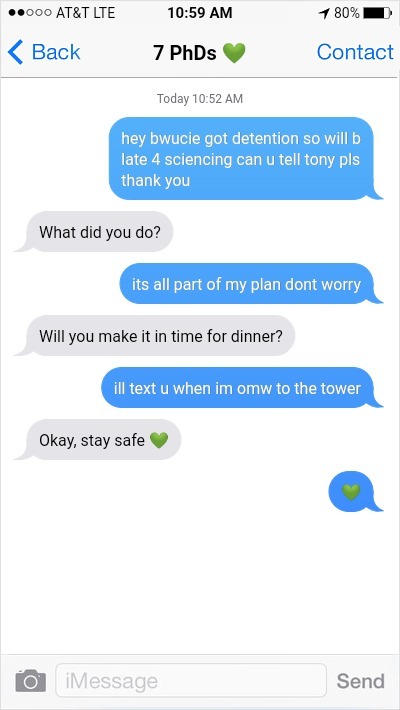
#tony stark x reader#tony stark x y/n#bruce banner x y/n#bruce banner x reader#stephen strange x reader#Stephen Strange x y/n#bun writes#party favours#author doesn't advocate for small dick jokes but tbh the abusive fucker deserves it
154 notes
·
View notes
Text
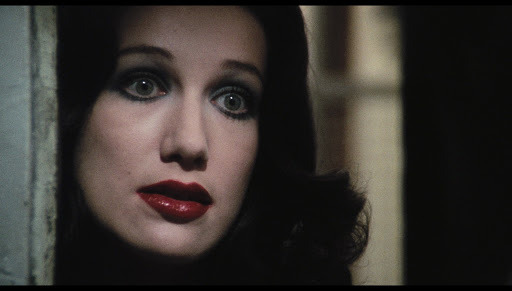

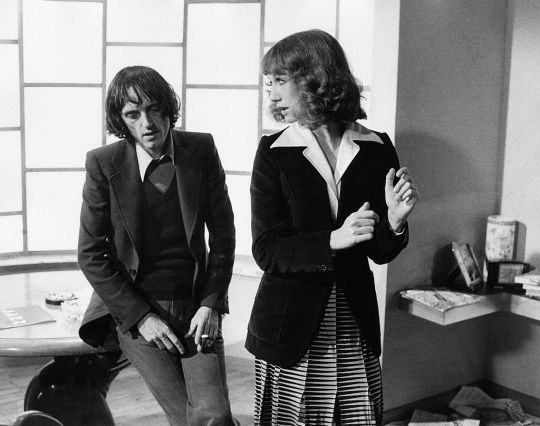

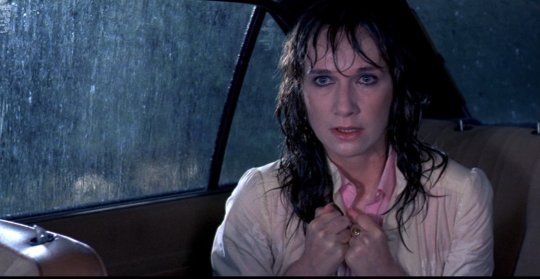
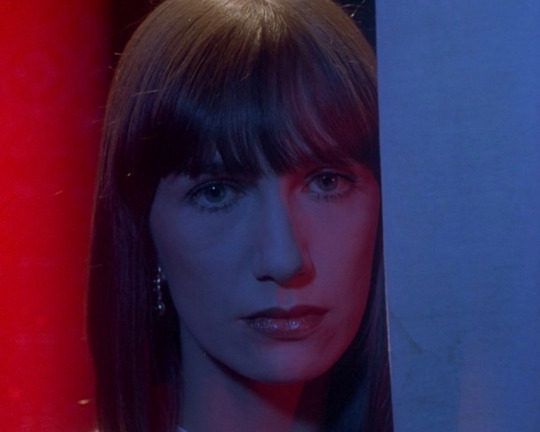
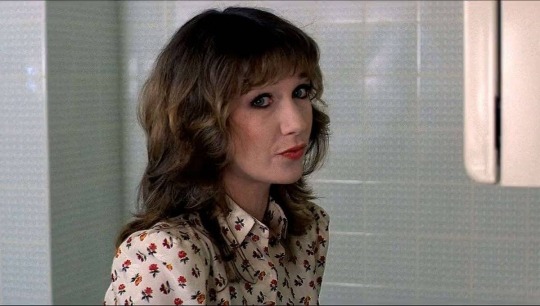

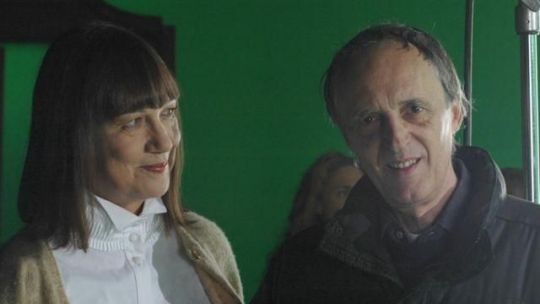
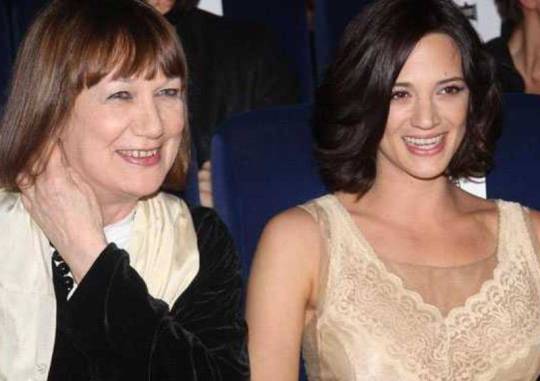
RIP Daria Nicolodi (19.6.1950 – 26.11.2020)
"I grew up in a house that was like a library or a museum. I feel I refined Dario's taste very much. I went with him to many art exhibitions. [...] I feel I guided Dario to something outside the scope of just cinema, towards art, music, theatre, and other things."
"For me, I did not want to be a star; I just wanted to act well."
A true icon of the silver screen, and one of the most significant figures in Italian genre cinema of the 20th Century. Daria was born in Florence, in 1950, into a talented family of intellectuals and artists: her father was a lawyer, her mother an academic; her maternal grandfather was Alfredo Casella, a composer and conductor who counted Stravinsky, Mahler and Strauss among his friends.
Daria moved to Rome while still a teen, and by 1970 she was beginning to find work on stage and screen. Elio Petri was quick to spot her talent, guiding her through her first theatrical roles, and ultimately casting her as the female lead in La proprietà non è più un furto (Property Is No Longer a Theft, 1973), a highly political satire about wealth and class in modern Italy. The following year, she attended auditions for Profondo Rosso (Deep Red), where she met director Dario Argento. Until this point, she had mostly played attractive blondes and love interests; Argento could see that she was capable of more nuance, and had her cut her long hair and dye it red, adopt a more masculine style of dress, and bring her wry sense of humour to the character of Gianna. In return, Daria adopted some of the director's mannerisms and habits for her character, particularly in her physical movements and hand gestures. The two worked well together, on screen and off; they soon became romantically involved, and in 1975 Daria gave birth to a daughter, Asia Argento (her second, having previously had a child with sculptor Mario Ceroli).
Daria and Dario would remain together for the next ten years. In the process she became not only his partner, but his closest collaborator, and in many ways his muse. Before Asia was born, the two took a holiday in northern Europe, travelling around France, Germany and Switzerland. The trip reminded Daria of her grandmother - another artist, the French pianist Yvonne Müller Loeb Casella - who had a keen interest in the supernatural, and thrilled the young Nicolodi with tales of her time at an academy on the Swiss/German border, where the faculty had all practised black magic. Those stories would form the basic outline of Argento's next film, Suspiria (1977). The couple developed the idea between them, and worked together on the script, incorporating everything from fairy tales to Nicolodi's dreams. In later years, Argento would downplay the contribution made by Daria to the finished script, but her influence - and in turn, the way Suspiria would influence the entire horror genre, and develop Argento's work - is undeniable. Her fight for official recognition - and a screen credit as co-writer - left the actor exhausted.
Daria had also intended to act in the film, but was prevented by injury. She returned for Inferno (1980), the spiritual sequel to Suspiria, and once again contributed behind the cameras: the original concept was Nicolodi's, and she worked on the script with Dario. Unwilling to fight him again, her writing work went uncredited this time. With their professional relationship strained, Nicolodi would only agree to a small supporting role in Argento's next film, Tenebre (Tenebrae, 1982). However, when the American actor who had been cast as the female lead dropped out just before the start of shooting, Daria once again found herself starring in an Argento horror film. The shoot was not a happy one; as Daria bonded with her onscreen love interest, Anthony Franciosa, over a shared passion for theatre, Argento became jealous and difficult. The atmosphere on set deteriorated to such a point that, when directed to give a short, sharp scream for the final shot of the film (her final day of shooting), Daria instead unleashed a long, deafening howl of terror. What she described as her "cathartic release from the whole nightmare" would become one of the most iconic moments in the film.
By the time they were making Phenomena (Creepers, 1985), the relationship between Nicolodi and Argento was beginning to fail. They would separate that year, and although she initially did not express any interest in working for the director again, she was tempted back for Opera (1987) by an elaborate death scene. Outside of her work with Dario, Nicolodi had built up a modest but significant filmography with other big names in Italian genre cinema. For the great Mario Bava, she starred in his final film, Shock (1977); for his son, Lamberto, she took a supporting role in Le foto di Gioia (Delirium, 1987). Michele Soavi, a protégé of her former partner, cast her in La Setta (The Sect, 1991), but mainly she would concentrate on the stage from this point on, describing theatre as her first love. The tragic death of her elder daughter, Anna, in 1994, only kept her further away from the limelight. It was the burgeoning career of younger daughter Asia, both as actor and director, that would tempt her back in front of the cameras.
Although she made comparatively few films, Daria's impact on Italian horror cinema has been huge. What's most fascinating is how deeply individual and unique each of her performances were. It's tempting, in looking at her work with Dario Argento, to perhaps project a potential pattern in her different roles, that aligns with how he may have viewed their relationship. In Profondo Rosso, shot whilst they were still getting to know one another, she is self-contained, confident, attractive and capable. By Inferno, when their relationship was well established and they had a child together, her character is much more vulnerable, an innocent caught up in something terrible and in need of protection. In Tenebre, one of Argento's most accomplished films, she has her weakest part - she was unhappy with the role, which is notably underwritten compared to the characters around her, and in which her main purpose seems to be to react to the events unfolding. As their relationship faltered on the set of Phenomena, she took her ugliest role of all - a dark distortion of obsessive motherhood. Perhaps it might seem like a disservice to her, to make these comparisons, but it is also true that Daria was an incredibly obliging actor - always at pains to give her director (Argento or otherwise) exactly what she thought they needed, whether requested or not. Petri had told her she reminded him of a figure from his past, so she consciously exaggerated those mannerisms to please him; Argento originally struck her as egocentric, so she mirrored his stance and his gestures. A consummate professional, I don't think it's beyond the realm of possibilities that by Phenomena she was channeling their dysfunctional relationship and distorted self images into one of the most intense and disturbing performances of her career.
I would have first seen Daria in Profondo Rosso, more than a decade ago now. It remains one of my favourite films, and her performance in it quite simply one of my favourite performances ever given by an actor. Gianna is such a complete and unique creation, unlike not only any female character in Italian cinema at that point, but quite unlike any character in a horror film. Profondo Rosso is a giallo film, perhaps the finest giallo film - it is a bloody, terrifying slasher film in which horrific violence is visited on the undeserving. And as Gianna, Daria spends the entire film incredibly, almost deliriously happy. She grins, she poses, she spins her cigarellos between her fingers. She teases David Hemmings, pricks at his ego, challenges him to arm wrestling contests. She drives a broken down car, tricks her way into crime scenes, and takes photographs of witnesses even when strictly forbidden to. She is among the most likeable, endearing, and thoroughly real protagonists to ever appear in what is essentially a fantasy film. She is so very human that she grounds what should be a totally absurd concept, and in the process provides exactly what it is that makes that film work so well - and it did work, the film was a huge critical and commercial success, and revitalised Argento's career after an early 70s slump.
There are two cuts of Profondo Rosso, and I know there is a school of thought that the shorter, international cut (which removes much of Nicolodi's work, trimming all the more jovial and character-building scenes) is the superior one - that it makes for a sharper, more suspenseful thriller. I absolutely disagree. To cut the relationship scenes is to take out the heart and soul of the film: Hemmings is the purported lead, but his character is detached, emotionally stunted. The heart of the film is in Nicolodi - in her sharp suits and twinkling eye, in her laughter and her fear - and the only reason the suspense works at all is because the audience has a reason to care, someone to care about. Profondo Rosso was the first time I saw an Italian film not as a garish thrill, but as something much deeper, more profound. It was perhaps the first time I realised that a horror film could also be art. I fell in love with Italian cinema, with gialli, and with Daria Nicolodi.
#daria nicolodi#Rip#death ment tw#obituary#dario argento#profondo rosso#deep red#suspiria#Inferno#tenebre#Property is no longer a Theft#italian cinema#Le foto di Gioia#Delirium#Shock#La Setta#The sect#Scarlet diva#Asia Argento#mother of tears#long post#Sorry.. I still don't know how to do read mores#Rip Daria ♥
75 notes
·
View notes
Text
what the world will look like when it’s over
Can’t Get You Out of My Head is the first Adam Curtis documentary I’ve seen. I gather it’s not the most successful demonstration of his method; it sounds like Hypernormalization or The Century of the Self are tighter in their construction, less effortful (count how many times Curtis says something like “But then it started to run out of control” in this one), and perhaps less frustrating in their narration. In the early episodes of this documentary in particular, it feels like Curtis is constantly presenting what’s being covered as the turn, the decisive shift in his narrative—the emergence of the American counterculture, the revolution of the “unit of One” led by Mao Zedong’s wife Jiang Qing to help her break the stalemate with the other revolutionaries in China into which Zedong had fallen in the 1960s, George Boole’s development of Boolean logic to describe human thought. And the whole thing feels longer and baggier than it needs to be. The early episodes devote much time to interesting individual narratives, like that of the Trinidadian British activist or sorts named Michael Freitas (or Michael X) or a trans woman named Julie in 1960s Britain; they also sprawl in a way that makes the overall argument a bit hard to divine. It’s not until the fourth episode that the shape of Curtis’s narrative becomes clear—that our age is the product of a struggle between a new, broadly liberal-democratic and capitalist image of individualism, a dying era of collectivist struggle, and older, more vicious systems of power, derived from the control of capital and expressed through the middle classes’ suspicion and viciousness toward the subaltern and toward each other, even as they remain subject to the power of oligarchs and billionaires.
Curtis also seems to play fast and loose with the facts sometimes. When he presents Médecins Sans Frontières’s founder Bernard Kouchner as an avatar of a theory of the “one world” of liberal democracy—the idea that we’re basically one world of individuals, enjoying certain human rights regardless of political orientations or ideologies, and that Western nations are duty-bound by virtue of their prosperity to intervene when other nations violate people’s rights—it seems a distortion of what Kouchner actually says in the footage Curtis includes: “We don’t care on leftist or rightist countries [sic]; there is no leftist and rightist suffering, and there is no possibility to split the world in[to] ‘good’ people or ‘bad’ people, ‘good’ dead and ‘bad’ dead.” Which isn’t to say Kouchner didn’t believe in liberal-democratic ideas—he may well have—but what he’s shown as saying has to do with the consideration of suffering as suffering regardless of a person’s identity or allegiance, which is a different matter.
This is just one of several moments when I stopped to wonder how secure I actually was in Curtis’s hands. But ultimately, I find the emotional history he lays out resonant. The age we’re living through now, in the 2020s, is indeed the product of certain fantasies of individualism and of a post-end-of-history, neoliberal “one world”—with no ideologies but capitalism and putative democracy—meeting age-old systems of power, acquisition, and control, and age-old features of the human mind and heart: resentment, prejudice, betrayal, jealousy, the need to be prosperous, the need to be free.
And Curtis’s work appeals to me for the same reason the writer Pankaj Mishra’s work does. He historicizes our underhistoricized time. What’s more, he does so in a way that’s especially rare to see in any mainstream media venue. Usually, when you want to understand the connections between, say, colonial-era empires and post-war welfare states, or if you want to understand what happened to turn Western societies as they were post-war to Western societies as they are post-financialization, you have to seek the information out on your own. It’s valuable to have someone in a place like the BBC willing to put the pieces of these narratives together. And willing to remind us of the events that are so incredibly easy to forget even in one’s own lifetime. Abu Ghraib, for instance, which pops up in part 6 of the documentary. That shit happened while I was alive. How often do I remember it? How many American sins get drowned out in the new ones that emerge every day of every month of every year? Or in the stasis that sets in when what was once novel, like the War on Terror or the invasion into our privacy represented by the Patriot Act, fades into regular life?
I was jotting down copious notes while watching the doc, as is my wont. The questions and thoughts that came up, in no particular order:
How do the elites of a given era impose their preferred ideologies? How are the structures of power we grow up with constructed, and how do those go on to shape our behavior?
Control, as it’s practiced by societies in the 21st century, often comes down to the recognition of patterns in human behavior—and their manipulation.
The loss of power, like that which was suffered after the collapse of Britain’s empire or in the slow hollowing-out of America’s manufacturing industry in the 20th century, leads to anger and melancholy that people can’t be expected to abandon. Does doing what you’re supposed to do bring you the happiness you were promised—or anything even resembling that happiness? When we’re living in a historical moment in which the answer is no, as is often the case today, we’ll need to watch out. It’s a sign people are being manipulated and abused.
Over time, the tech industry has come to understand that you can manage people en masse by collecting their data and manipulating the messages they receive in social media activity feeds and advertising—and you can make them feel like sovereign individuals at the same time through the very same means. In light of all this, will there ever be a revolution that actually changes the structure of power we’re currently stuck in? Is there a chance to alter this extreme individualism. on the part of people who are surrounded by political systems so enervated, by the supra-governmental system that is global finance capital—which politicians can’t control, and must appease and palliate—that they can’t respond to phenomena like climate change or meaningfully punish atrocities like wars prosecuted on false pretenses? Or are we stuck where we are, in a world that’s corrupt and exhausted? In nations whose governments depend on technologies of surveillance and myths of consumerist abundance or nationalist glory to maintain power, in the absence of any real vision for the future?
It all leads to some interesting takeaways. For one, the way culture reacts to politics and vice versa. As I was watching Can’t Get You Out of My Head, I was reminded of a conversation folks on the Discord server for the Relentless Picnic podcast had had recently about the strange things Richard Dawkins posts on his Twitter account. And it led me to think: when religious “caring conservatism” was in the White House, Richard Dawkins and his New Atheism, this brash repudiation of religion and its pieties, grew as a counterweight. When Obama and his technocratic regime were in power, with social media bringing on a wave of progressivism in popular culture and algorithms presenting us a fantasy of endless choice—much of which was a thin veneer over the same old shit: banks getting bailed out, forever wars going on, productivity rising while wages stagnated—we also got Jordan Peterson-types who claimed to speak to a human need for narrative, even in this point of stability we had seemed to reach, this recovery of sanity after the chaos that was the Iraq War and the financial crisis; who claimed we needed ideas and myths to animate and drive our lives, because they sensed there was something hollow and mendacious driving all this consumer choice, for all it seemed a symbol of our freedom and progress.
Of course, both Peterson and Dawkins are provocateurs, not intellectuals; I don’t mean to dignify the movements they led much, since in both the appearance of intellectual rigor or moral clarity often covered the indulgence of the worst instincts: immaturity, obstinacy, provocation for provocation’s sake, contempt for women and trans people. The New Atheists had a point, and could be absolute assholes about it; they ultimately could be as fundamentalist and dogmatic as any religious people. As for Jordan Peterson, his actual work, in the way of so many grand theorists, uses the appearance of profundity to cover something ultimately pretty banal. And he’s most known for grandstanding in the public sphere—refusing to use people’s pronouns, the usual conservative shit. But these movements do seem to reflect a countercultural response no less than 1960s counterculture reflects a reaction to the staid culture of 1950s America and the sins it covered up.
Which leads me to the question: what was the culture’s response to Trump’s administration? Maybe QAnon and Russiagate, as conspiracies—that is, actual narratives people inhabit to explain the world’s evils, and not just a vague need for them that they satisfied with Jordan Peterson’s light form of Stoicism or his theories of Light and Dark or whatever the fuck. And in that way, perhaps, once a countercultural movement—namely nationalism and Trumpian populism—actually seemed to have overthrown a regime, of Obama-era liberal technocratic management, culture and politics came to mirror each other, rather than standing in opposition to each other. Both became equally conspiratorial and unhinged; in fact, they merged. All the ruling myths and conspiracies mutate in kind these days: Trump’s garbage about draining the swamp, a cover for Trump and his family enriching themselves and Stephen Miller’s like getting to fashion the state they wanted, becomes QAnon’s garbage about rings of child trafficking and pedophilia and Trump, of all people, being their savior—all while actual trafficking and abuse perpetuated by Jeffrey Epstein and his ilk goes unpunished, Epstein’s death swallowed up by the state without a sound—becomes the liberal pundit class��s screaming about Russia: connections between Trump and Putin that were always conjectural to me, because no one who pled them seemed to feel much need to substantiate them.
Here again I feel like what were once centrifugal forces in our culture—between mainstream and the independent media, for example; between people in power and their critics, either in the media or at society’s margins—have collapsed into a single morass. We’re all in hell and there’s no way out.
In all this, what does Biden’s administration represent? Little more than an interregnum, to my mind. How disappointing to see not even a gesture toward forgiving student debt or raising the minimum wage in these first 100 days of his presidency. There’s been some progress in climate legislation, and progress in putting Stephen Miller’s deportation machine to a halt (though they’re also reopening several emergency shelters to accommodate more minors already being held past the mandated limits for keeping them in the custody of the Department of Health and Human Services’s Office of Refugee Resettlement). But there’s also been such triangulation on policy by the administration and its supporters and such complacency on the part of the media covering the administration, refusing to call them out on or even cover this. And how can the average voter respond but with resignation?
Ever since I read Thomas Mann’s Doctor Faustus near the start of lockdown, absorbing the picture of the world pre-World War II that’s presented in that book, I’ve thought we’re in the same sort of moment that Mann’s protagonist Zeitblom was in. There’s a crisis that’s passing over this whole planet like a wave or a seismic event, and no human intervention can interrupt it. We can only wait for it to pass—holding on to whatever’s to hand, waiting to see what the world will look like when it’s over.
#adam curtis#documentaries#thomas mann#jordan peterson#richard dawkins#pankaj mishra#the relentless picnic#conspiracy
28 notes
·
View notes